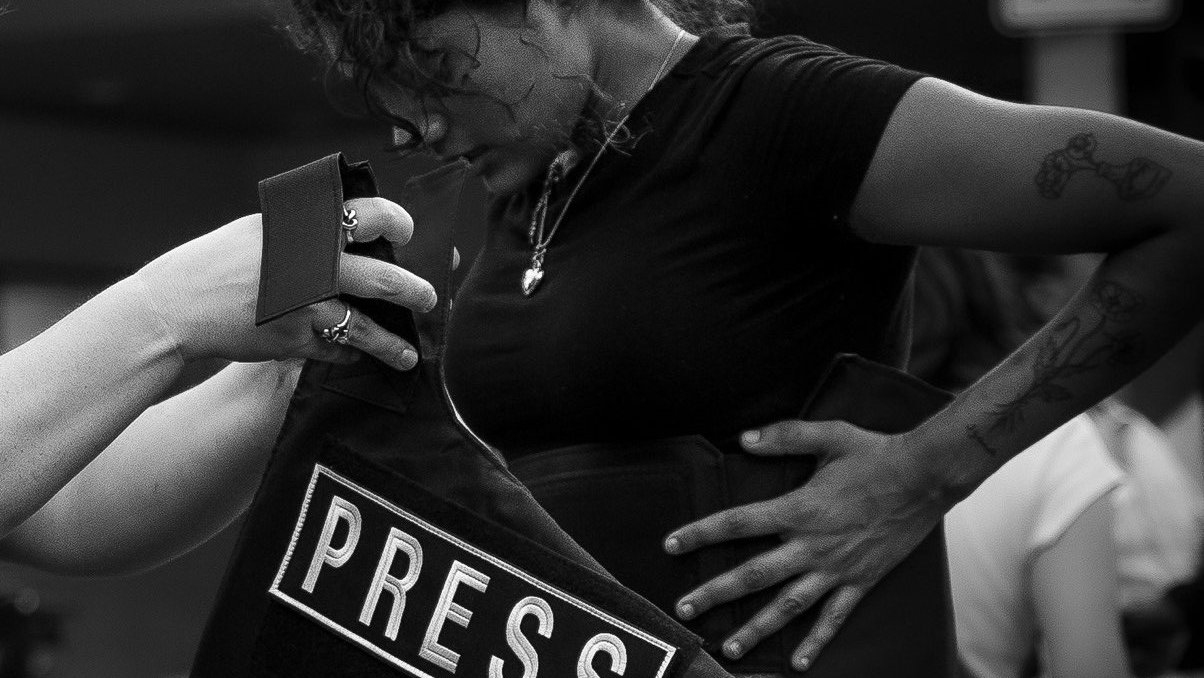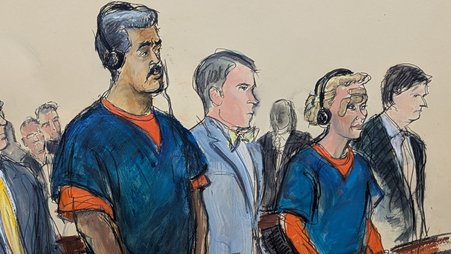Neha Madhira grew up in North Texas with the TV constantly buzzing with world news. Madhira, now 24, recognized that journalism was key to keeping her family informed on the happenings back home in India. But with state-sanctioned violence limiting journalists on the ground from reporting, and few legacy media outlets with reporters that are representative of her left to report on it, Madhira also knew there were gaps to be filled.
Nearly a decade later, Madhira is bridging the gaps in Western media’s health and education coverage of the Middle East-North Africa region, South Asia, and their diasporas. The contacts she’s built have allowed her to expand her reporting focus — she recently collaborated with Freedom of the Press Foundation (FPF) on an article for The Intercept featuring testimonials from journalists targeted by the Israeli military.
“In a time where press freedom is definitely in question in the U.S. right now, and censorship on social media and in newsroom settings is even becoming more and more common, it’s really important for me that I stay true to my values of why I started reporting,” Madhira said. “I use freelancing to try my best to cover that gap in reporting when it comes to Western media, and try to cover the communities that I know deserve a platform.”
Madhira first spent years covering breaking news, the COVID-19 pandemic, and the social movements of 2020 for local newsrooms in Austin, Texas, while studying journalism and women’s and gender issues. But with activism movements roaring overseas, coupled with the lack of coverage on the impacts of the pandemic in India, she saw freelancing as an opportunity to cover issues happening in countries that face extreme press censorship for audiences overseas and in the U.S.
“A big part of my job during the pandemic, and even now, is reaching out to health care officials, regardless of what’s happening, to actually see who it’s affecting, why it’s affecting them, and what resources people need,” Madhira said. “If there’s a possibility that that information is being withheld from the public, that becomes a problem. How are we supposed to continue to inform and educate the public on how to stay safe during a pandemic or epidemic if we don’t even have that information to begin with?”
She has built close relationships with journalists on the ground in Iran, Afghanistan, India, Gaza, and the West Bank, relying on their reporting to reach audiences in the U.S. and abroad. Recognizing the privilege she holds, Madhira does her best to ensure their perspectives are reflected in her writing.
“I covered the Woman, Life, Freedom movement in Iran very extensively,” she said. “Two journalists who I really looked up to were arrested around this time last year. I wrote a story on that, and I noticed that a lot of Iranian and Iranian American activists were reaching out to me, appreciating the fact that the story was written, because even writing about their release and the details of how they are doing and how journalism and activism is continuing within the country is a privilege.”
Over the past year and a half, Madhira has covered the medical and humanitarian infrastructure collapses in Gaza and the West Bank, as well as the campus encampments in protest of Israel’s actions, and the shadowy organizations collaborating with the government to identify and persecute students and others who are critical of Israel.
Neha Madhira“As we see less and less news coming out of Gaza, I urge people to not look away.”
With more than 180 journalists killed by Israel to date, media blackouts, and censorship on social media, Madhira writes to amplify the voices of her colleagues remaining on the ground, including those whose stories she wrote about in The Intercept.
“I have advocated for Palestine since I was a child, and at the beginning of October 2023, I was horrified at the language being used to dehumanize Palestinians,” she said. “As a journalist, I was seeing the gaps in Western media coverage and its support of Israel, and I wanted to help change this narrative in any way I could. As we see less and less news coming out of Gaza, I urge people to not look away and to pay closer attention to passive voice being used to describe the atrocities Palestinians continue to face every day.”
While the stories that Madhira tells are urgent and deserving of immediate attention, communicating with people on the ground in Gaza is a slow, challenging process. “Most of the people I’ve interviewed, whether that be journalists, or medical workers, or humanitarian workers, there is a small gap every single day that they have access to the internet, and we have used that to communicate with each other every single day,” she said. “I continue to do that because their voices are the most important and the most pertinent.”
Reporting from the U.S. on Palestine has not come without its own battles against censorship. Having experienced “shadow banning” that has limited visibility of her social media posts, she said the public must pay attention to the ways social media platforms moderate content to censor certain news, and she calls for users to consume content carefully. By amplifying journalists’ content on social media, independent reporting can reach wider audiences and fight against algorithmic suppression, Madhira added.
“There are a lot more people who are in the dark about what is happening than you would think,” she said. “There are so many nonprofit, independent newsrooms, not only in the U.S., but around the world who do incredible reporting for very little money, and it’s important to pay attention, because these journalists are some of the most skilled and experienced within their field.”





